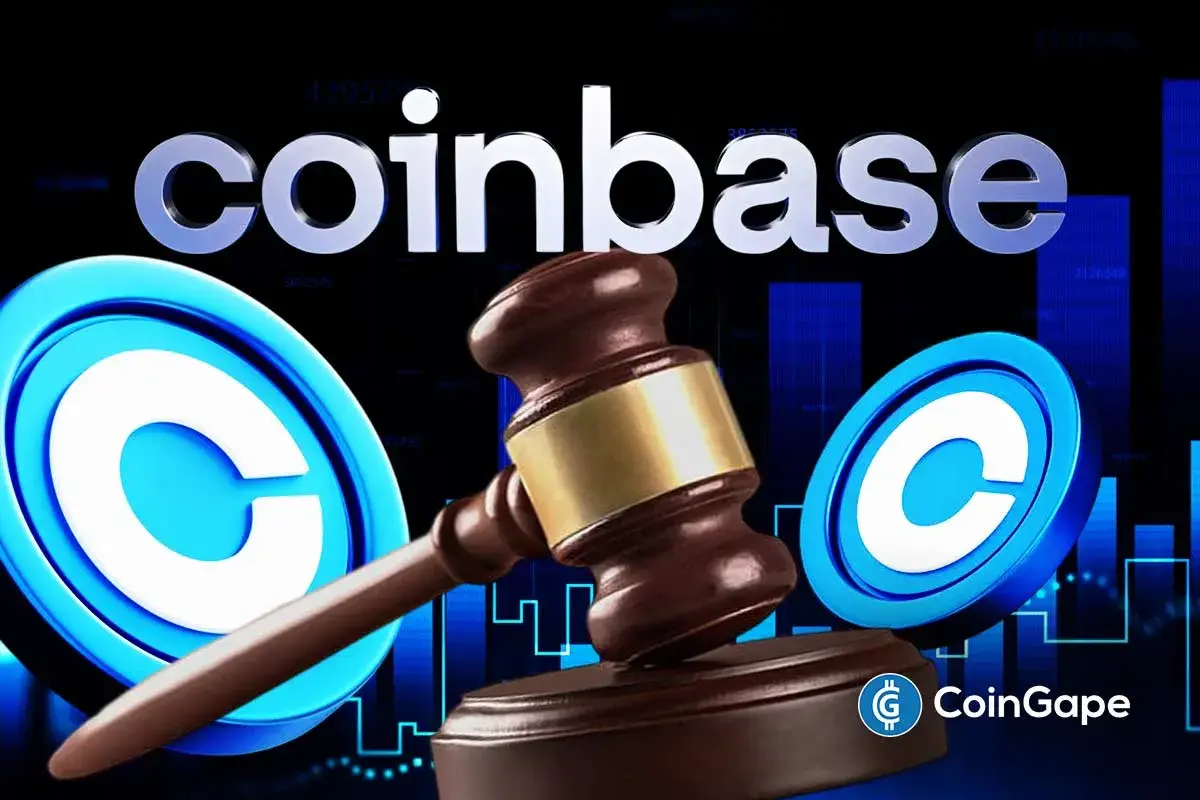Coinbase Vs SEC: SEC Leverages New Ruling to Press Charges Against Coinbase

Highlights
- SEC tightens grip on Coinbase post insider trading ruling, signaling broader crypto regulation.
- Legal battle between SEC and Coinbase sets a precedent for crypto's classification as securities.
- Crypto industry braces for regulatory shakeup as SEC doubles down on Coinbase lawsuit.
The Securities and Exchange Commission (SEC) has tried to double up its lawsuit against the leading cryptocurrency exchange Coinbase. This action follows a recent court decision that defined some crypto assets as securities, giving the SEC a new direction in its ongoing legal investigation of crypto exchanges and their operations.
Foundation of the SEC’s Enhanced Legal Strategy
The SEC’s move to build its case against Coinbase is based on a recent ruling on insider trading involving the exchange. On March 1, Sameer Ramani, an associate of Ishan Wahi who used to work as a product manager at Coinbase, was subject to a default judgment. This court decision considering the crypto assets in the insider trading case as securities is crucial for the SEC. It is consistent with the SEC’s perspective that certain crypto transactions should be treated as securities transactions and are thereby subject to its regulation.
Ishan Wahi had already settled with the SEC and his brother Nikhil Wahi concerning the violation (insider trading), which is a very important precedent in the regulation of cryptocurrency markets. The notice sent by the SEC to Judge Katherine Polk Failla in New York shows the importance of this recent ruling in their case against Coinbase, suggesting that the exchange acted as an unregistered entity involved in the brokering and clearing of securities.
Implications for Coinbase and the Crypto Industry
The argument of the SEC centers on the application of the Howey Test, a standard originating from a 1946 Supreme Court case, which is used to determine if an asset is a security. This latest classification of trading specific crypto assets as securities trades may have a domino effect, bringing other crypto exchanges and digital assets into similar scrutiny and regulatory requirements
Coinbase, which had always argued that many cryptocurrencies do not satisfy the definition of securities, now confronts an increased challenge. Testing of the defense of the exchange against the claims of the SEC was performed recently in the oral arguments held in January when Judge Failla asked direct questions about what constitutes security, staking, and collectibles. The outcome of this legal battle may set a precedent, influencing the regulatory landscape for cryptocurrencies in the United States.
The larger crypto industry is also closely following the events in this case that might determine how cryptocurrencies will be labelled and regulated in the future. A shift towards more stringent regulation could necessitate changes in how crypto exchanges operate, potentially requiring them to register with the SEC or adjust their offerings to comply with securities laws.
Read Also: Crypto Markets Watch as Atlanta Fed Hints at a Pause After Subsequent Rate Cut
- Expert Predicts Bitcoin Dip to $49K as ‘Trump Insider’ Whale Dumps 5,000 BTC
- Bitcoin Price Rebounds $70K, Here are the Top Reasons Why?
- Crypto Market Weekly Recap: Crypto Bill White House Meeting, Binance Buys $1B BTC, and More (9- Feb 13)
- TRUMP Coin Pumps 5% as Canary Capital Amends ETF Filing With New Details
- Crypto Prices Surge Today: BTC, ETH, XRP, SOL Soar Despite US Government Shutdown
- Bitcoin Price Prediction: How Could Brazil’s Strategic Bitcoin Reserve Proposal Impact BTC?
- 3 Top Reasons Pi Network Price Surging Today (14 Feb)
- XRP Price Prediction Ahead of Potential U.S. Government Shutdown Today
- Bitcoin Price Outlook As Gold And Silver Lose $3.6 Trillion in Market Value
- XRP and Ethereum Price Prediction as Trump Seeks to Lower Key Tariffs
- Solana Price Prediction as $2.6 Trillion Citi Expands Tokenized Products to SOL


















